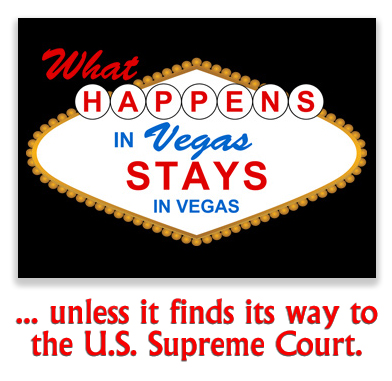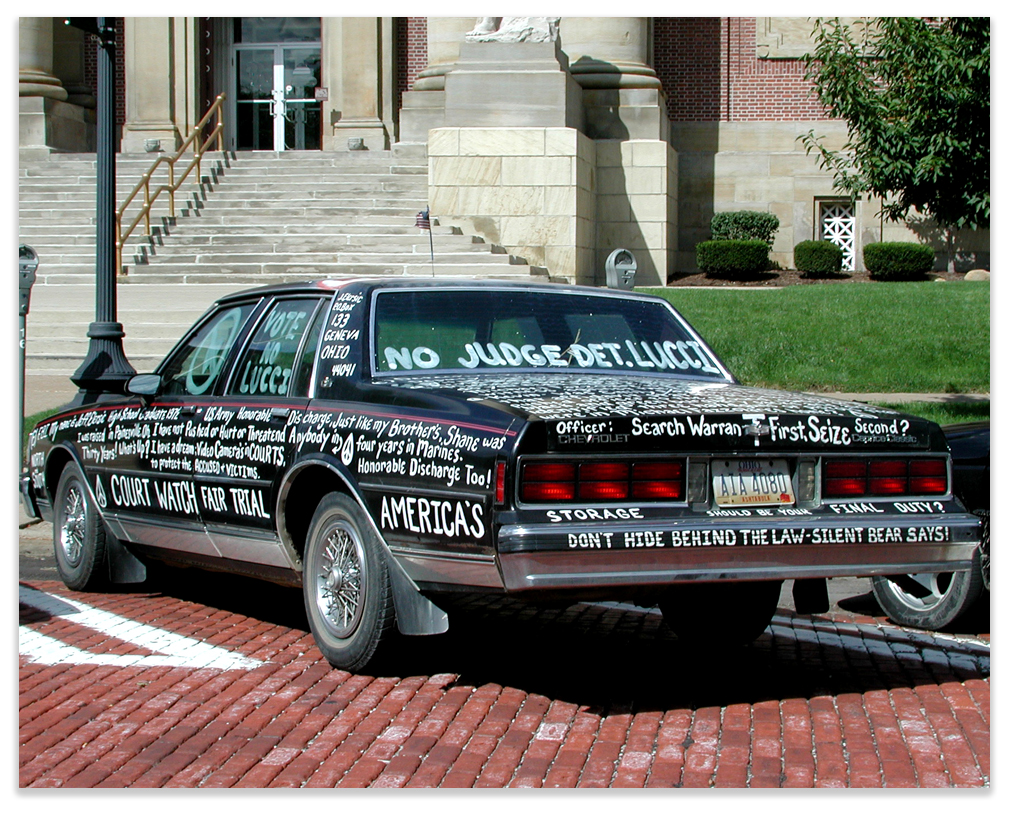We post news and comment on federal criminal justice issues, focused primarily on trial and post-conviction matters, legislative initiatives, and sentencing issues.
THE JUDGE IN THE TOWN’S GOT BLOODSTAINS ON HIS HANDS…
We confess to a lack of creativity. This is the second time in less than a month that we’ve pinned our theme to lyrics from Vicki Lawrence’s 1973 hit, The Night the Lights Went Out in Georgia. What compounds our intellectual felons is that the judge in today’s report had hands stained green, not red.
The big Supreme Court news Monday was the unsurprising (to us, at least) Pena-Rodriguez v. Colorado decision, in which the Court held that the sanctity of the jury room could be invaded where a juror showed racial bias. The decision of importance to our readers, Beckles v. United States, ran a distant second in the news. And the case we’re looking at today, a summary disposition in Rippo v. Baker, was almost completely ignored.
 Mike Rippo is a Nevada death-row inmate who alleged that the judge in his state trial was biased. Mike was tried for two murders in 1992. Shortly after his trial started, newspaper stories revealed the judge, Gerard Bongiovanni, was under investigation by a federal grand jury for allegedly taking bribes. Mike moved for the judge’s recusal as a matter of due process, contending that a judge could not impartially adjudicate a case in which one of the parties was criminally investigating him. Mike argued the judge had a motive to favor the prosecution in his case, in order to curry favor.
Mike Rippo is a Nevada death-row inmate who alleged that the judge in his state trial was biased. Mike was tried for two murders in 1992. Shortly after his trial started, newspaper stories revealed the judge, Gerard Bongiovanni, was under investigation by a federal grand jury for allegedly taking bribes. Mike moved for the judge’s recusal as a matter of due process, contending that a judge could not impartially adjudicate a case in which one of the parties was criminally investigating him. Mike argued the judge had a motive to favor the prosecution in his case, in order to curry favor.
The DA falsely denied that his office was part of the bribery probe, and the judge himself said he did not know about any state law enforcement involvement in the fed’s investigation. The trial went on, and Mike was convicted. But after the trial ended, the judge was indicted by a federal grand jury for bribery unrelated to Mike’s case.
 In a later state post-conviction proceeding, Mike advanced his bias claim again, this time pointing to documents from the judge’s criminal trial indicating that the district attorney’s office had participated in the bribery investigation. The state court denied the motion, and the Nevada Supreme Court affirmed. It reasoned that Mike was not entitled to discovery or an evidentiary hearing because his allegations “did not support the assertion that the trial judge was actually biased in this case.”
In a later state post-conviction proceeding, Mike advanced his bias claim again, this time pointing to documents from the judge’s criminal trial indicating that the district attorney’s office had participated in the bribery investigation. The state court denied the motion, and the Nevada Supreme Court affirmed. It reasoned that Mike was not entitled to discovery or an evidentiary hearing because his allegations “did not support the assertion that the trial judge was actually biased in this case.”
The U.S. Supreme Court dithered over Mike’s petition for certiorari, re-listing it for conference five times. Finally, last Monday the Court summarily reversed the Nevada courts and sent the case back.
The Nevada courts’ error, last Monday’s short opinion said, was in applying the wrong legal standard. The due process clause “may sometimes demand recusal even when a judge has no actual bias,” the Court ruled. “Recusal is required when, objectively speaking, the probability of actual bias on the part of the judge or decision-maker is too high to be constitutionally tolerable.”

The test is not “whether a judge harbors an actual, subjective bias, but instead whether, as an objective matter, the average judge in his position is likely to be neutral, or whether there is an unconstitutional potential for bias.” To make out a bias complaint, a litigant need not “show as a matter of course that a judge was actually biased in the litigant’s case.” Such a standard would be nearly impossible to meet. Instead, it is enough if “the circumstances alleged” are such that “the risk of bias” is too high to be constitutionally tolerable.
And how high is too high? We’ll have to wait for further opinions to resolve that.
Rippo v. Baker, Case No. 16-6316 (March 6, 2017) per curiam
– Thomas L. Root

